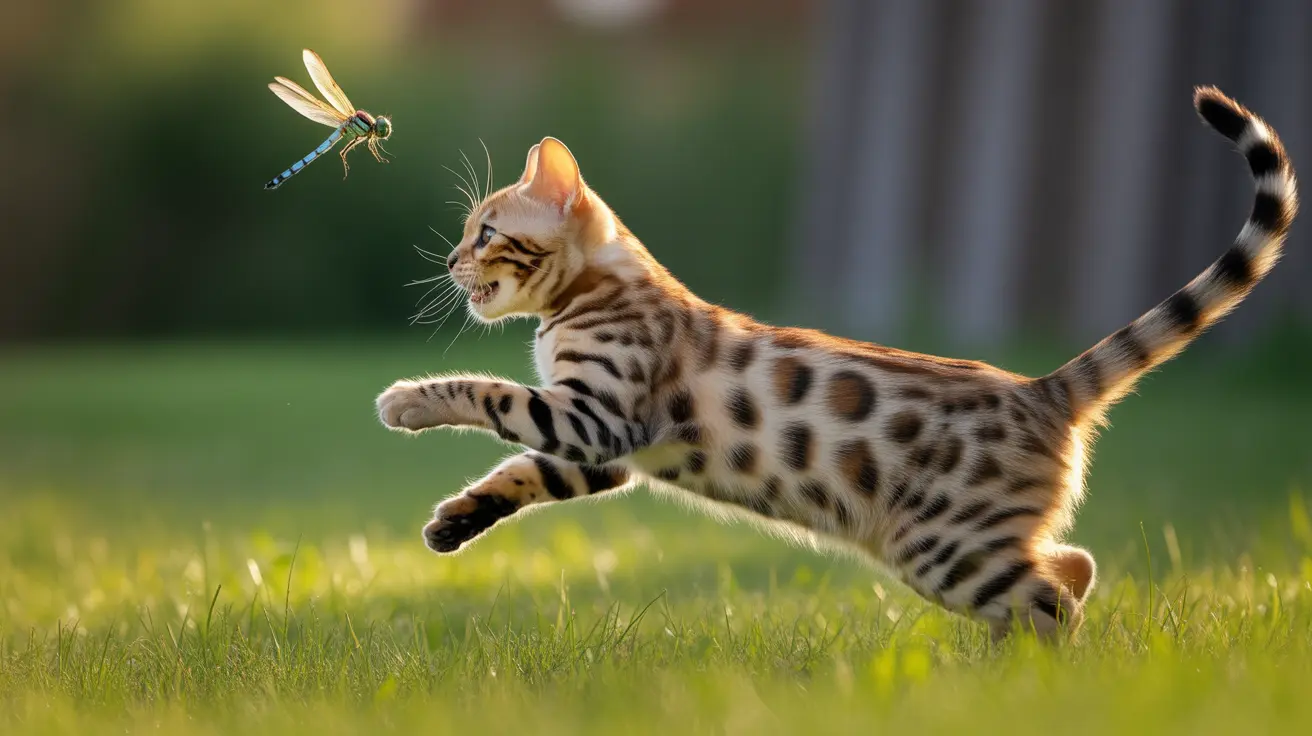Safety Profile: Are Dragonflies Safe for Cats?
Dragonflies are non-toxic insects that pose minimal risk to cats. Unlike some other flying insects, they don't have stingers or venom, and their mandibles (mouth parts) aren't strong enough to harm your cat's skin. Scientific research has consistently shown that dragonflies don't produce harmful toxins or carry diseases that could affect your feline companion.
The bright colors of dragonflies might make some pet owners nervous, but these beautiful hues are purely for mating purposes and don't indicate toxicity, unlike some other insects in nature.
Understanding Your Cat's Dragonfly-Hunting Behavior
Cats are natural hunters, and the quick, darting movements of dragonflies trigger their predatory instincts. This behavior is completely normal and can actually provide valuable mental and physical stimulation for your pet. Many cats will chase dragonflies purely for entertainment, even when they're well-fed.
Potential Health Considerations
While dragonflies themselves are safe, there are a few minor considerations to keep in mind:
- Possible digestive upset (rare and usually mild)
- Minimal risk from pesticide exposure if the dragonfly was recently in treated areas
- No significant parasite transmission concerns
- Limited nutritional value compared to regular cat food
Monitoring Your Cat's Dragonfly Interactions
While you don't need to prevent your cat from catching dragonflies, it's wise to observe their behavior and watch for any unusual symptoms. Most cats will naturally limit their insect consumption, but if you notice excessive hunting or any concerning symptoms, consult your veterinarian.
Signs to Watch For:
- Repeated vomiting
- Unusual lethargy
- Loss of appetite
- Diarrhea or other digestive issues
Alternative Entertainment Options
If you're concerned about your cat's insect-hunting habits or want to protect local dragonfly populations, consider these enrichment alternatives:
- Interactive flying toys that mimic insect movements
- Laser pointers (with proper safety precautions)
- Wand toys with fluttering attachments
- Electronic butterfly or bug toys
Frequently Asked Questions
Can cats safely eat dragonflies without any health risks?
Yes, cats can safely eat dragonflies as they are non-toxic and pose minimal health risks. However, as with any wild insect, there's a small chance of mild digestive upset.
Why do cats chase and sometimes eat dragonflies even if they aren't hungry?
Cats chase dragonflies due to their natural hunting instincts. The quick, erratic movement of dragonflies triggers their predatory drive, making them exciting targets for play and practice hunting.
Are there any dangers from parasites or diseases when my cat eats dragonflies?
Dragonflies are not significant carriers of parasites or diseases that affect cats. The risk of disease transmission from dragonflies to cats is extremely low.
What should I do if my cat shows digestive upset after eating a dragonfly?
Monitor your cat for 24 hours. If symptoms persist or worsen, consult your veterinarian. Most cases of digestive upset are mild and resolve on their own.
How can I keep my cat entertained without letting it hunt and eat outdoor insects like dragonflies?
Provide interactive toys that mimic insect movements, engage in regular play sessions, and create an enriching indoor environment with climbing spaces and window perches.
While dragonflies are safe for cats to eat, responsible pet ownership involves monitoring your cat's outdoor activities and providing appropriate alternatives for entertainment and exercise. Remember that your cat's primary nutrition should come from a balanced, commercial cat food diet rather than insects or other prey.






